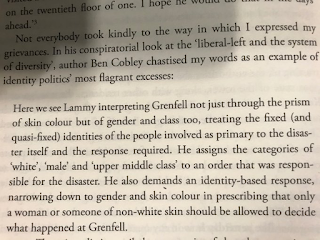A Response to a Response to my piece on The Lark Ascending
An Open Letter to Tom W Green, a composer and musician based in Glasgow. Dear Tom, Thank you for alerting me to your blogpost entitled ‘The Farts Ascending: Classical Music and the Culture War’, albeit with a rather unfriendly tweet saying that it was “partly in response” to my “ nonsense article that tried to concoct a culture war from RVW's The Lark Ascending”. I read it with interest. In responding here, I would like to address a number of factual errors and omissions you make which should be corrected. You call me “a right wing author”. This is untrue. I am actually of the left. I was a Labour Party member from 2010 to 2016 and still count myself of the left. My blog on which this letter is published is called A Free Left Blog . At no point have I said that I am no longer of the left. This assertion is at the core of your argument and should be corrected. Understandably, you use the original title of my piece , ‘Why The Elites Hate Vaughan Williams’. However perhaps yo
